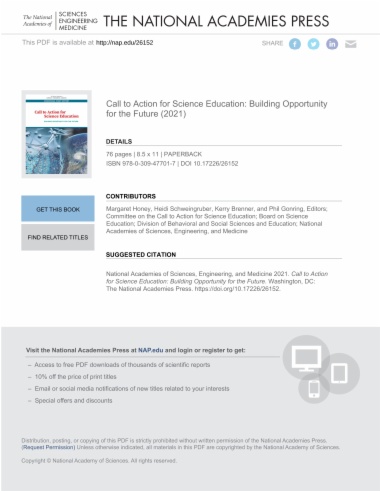

Scientific thinking and understanding are essential for all people navigating the world, not just for scientists and other science, technology, engineering and mathematics (STEM) professionals. Knowledge of science and the practice of scientific thinking are essential components of a fully functioning democracy. Science is also crucial for the future STEM workforce and the pursuit of living wage jobs. Yet, science education is not the national priority it needs to be, and states and local communities are not yet delivering high quality, rigorous learning experiences in equal measure to all students from elementary school through higher education.
Call to Action for Science Education: Building Opportunity for the Future articulates a vision for high quality science education, describes the gaps in opportunity that currently exist for many students, and outlines key priorities that need to be addressed in order to advance better, more equitable science education across grades K-16. This report makes recommendations for state and federal policy makers on ways to support equitable, productive pathways for all students to thrive and have opportunities to pursue careers that build on scientific skills and concepts. Call to Action for Science Education challenges the policy-making community at state and federal levels to acknowledge the importance of science, make science education a core national priority, and empower and give local communities the resources they must have to deliver a better, more equitable science education.